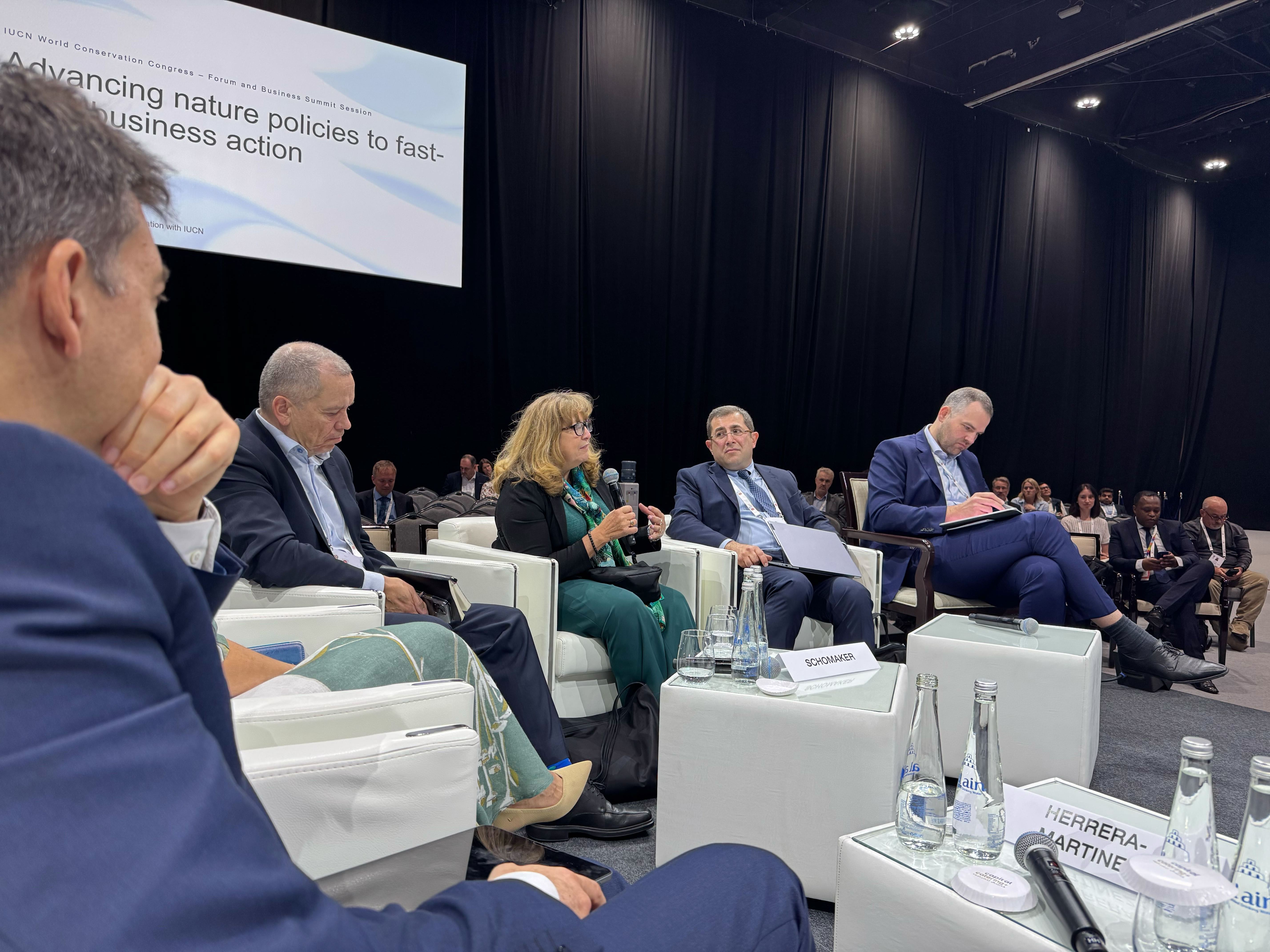From risk to reward: turning global ambition into local delivery
At the IUCN Congress in Abu Dhabi, global leaders explored how stronger nature policies can drive faster business action for sustainability.
From risk to reward: turning global ambition into local delivery
14 October 2025 Event report
At the IUCN World Conservation Congress in Abu Dhabi, a high-level session organised by the World Economic Forum in partnership with IUCN brought together ministers, business leaders, financial institutions and sustainability experts to explore how to advance nature policies to fast-track business action.
The session highlighted the growing recognition that implementation - rather than target-setting - has become the central challenge for sustainability policy.
Speakers noted that while the Paris Agreement and the Global Biodiversity Framework have established shared global goals, progress on the ground remains uneven.
Subsidies that drive unsustainable practices persist, while incentives for sustainable production are still limited. Participants from government and finance underlined the need for coherence: aligning public investment, private capital and policy frameworks so that they reinforce, rather than contradict, each other. Examples ranged from reforms to agricultural and fisheries subsidies to early experiments in using financial instruments to reward positive environmental outcomes.

Sustainable Forest Management: “Done by people, for people”
Representing PEFC International, Thorsten Arndt focused on the practical realities of implementation. “We often talk about the triple planetary crisis,” he said, “but what we face is a triple implementation crisis.”
He explained that this crisis has three dimensions: policy debates too often separate climate, biodiversity and social objectives instead of addressing them together; approaches that focus on avoiding harm rather than generating positive results; and a lack of ownership by the people whose behaviour ultimately determines success.
PEFC offers an integrated approach that brings these strands together. Its certification framework combines environmental, social and economic goals in one system and focuses on demonstrating positive outcomes as well as managing risk. By embedding implementation with those who manage forests and resources, it ensures that sustainability remains both practical and people-centred.
Real change, he argued, depends on those managing natural resources every day: “Sustainable management is about people — it is done by people, for people.”
Turning principles into practice
He illustrated how sustainable forest management and certification offer an existing structure for turning global frameworks into measurable outcomes. By linking agreed requirements with regular audits and transparent data, certification connects global ambition with local delivery.
With around a quarter of the world’s production forests certified under PEFC, the system offers a ready-made mechanism for others - from governments to lenders and market initiatives - to demonstrate credible implementation and traceability within their own frameworks. Rather than creating new instruments, actors seeking verified impact can build on certification to deliver at scale, efficiently and with assurance.
Coherence across policy, finance and practice
Throughout the session, panellists returned to the same conclusion: the mechanisms for action already exist, but they are rarely used in a coherent, connected way. Governments, financiers and businesses each hold part of the solution - policy direction, capital and implementation capacity - yet progress depends on bringing these elements together.
The discussion closed on a pragmatic note. Turning ambition into measurable outcomes will rely less on designing new systems than on using trusted ones effectively, ensuring that policies, finance and practice move in the same direction.
Speakers included: Juan Carlos Navarro (Minister of Environment, Panama); Hambardzum Matevosyan (Minister of Environment, Armenia); Astrid Schomaker (Executive Secretary, CBD); Juha Siikamäki (Chief Economist, IUCN); Adonai Herrera-Martínez (Director, Environment & Sustainability, EBRD); Claudine Blamey (Group Sustainability Director, Aviva); Daudi Sumba (Chief Conservation Officer, WWF International); Thorsten Arndt (Head of Advocacy, PEFC International).